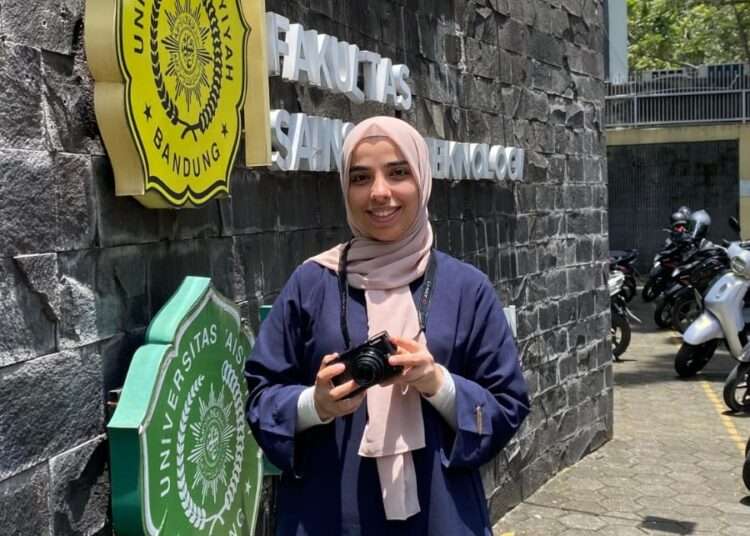MUHAMMADIYAH.OR.ID, BANDUNG – Celebrating Eid in a peaceful country like Indonesia is something Hala Ibrahim Lubbad, a Palestinian nursing student of Universitas ‘Aisyiyah (Unisa) Bandung, never imagined she would experience. This year marks her first Eid away from home, and it brings mixed emotions.
“I’m happy, but I’m also sad,” said Hala in a press release on Tuesday, April 8. Her happiness comes from being able to celebrate Eid in peace. But her heart aches for her family and the people of Gaza, who continue to suffer under the ongoing war. “They are bombed every day. Every day, someone becomes a martyr (shahid),” she added.
Hala shared that Eid traditions in Indonesia differ from those in Palestine. In her homeland, there’s no tradition of “mudik”—returning to one’s hometown for the holiday. Visiting graves after Eid prayers and eating ketupat are also not part of the celebration.
“In Palestine, we don’t have ketupat, and visiting cemeteries after the Eid prayer isn’t common,” she explained. Still, the spirit of Eid remains the same: a time for prayer, family, and reflection.
Currently, Hala’s mother and four siblings are living in a hospital in Egypt. Her mother is undergoing medical treatment, and her siblings are staying there to care for her. Sadly, she hasn’t heard from her father since the latest wave of violence began.
“Until now, I don’t know where my father is because of the poor internet connection in Gaza,” she said.
Hala came to Indonesia six months ago after receiving a scholarship to study nursing at Unisa Bandung. She chose the field to honor her grandfather and uncle—both of whom were nurses and were killed while helping others during the war.
“I want to continue their legacy by helping others as a nurse,” she said.
Speaking about the current situation in Gaza, Hala said Israeli attacks have increasingly targeted children, women, and the elderly.
“Every day, more children become martyrs,” she said. With an estimated 1.5 million people still living in Gaza, she fears for her country’s survival. “If we all die or leave, there will be no more Palestine, no more Al-Aqsa Mosque,” she said.
Hala added that every Palestinian sees their presence in the homeland as a form of resistance. Many who live abroad still hope to return one day. But for now, that hope is difficult to hold onto. The borders of Gaza are closed, cutting off access to water, electricity, and humanitarian aid.
“Some people have died just from not drinking water for days,” she explained. “The aid that comes from outside can’t get in.”











